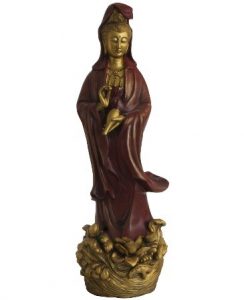Let’s Talk Religion
Jin Kong is a guest research fellow with The Greater Cincinnati World Affairs Council (GCWAC) for the next six months. This fellowship is sponsored by The Mission Continues. Through this fellowship, Kong is researching to gain a better understanding of the populist sentiment towards immigrants in the Cincinnati region. This is one blog of many on his research of immigration and Cincinnati. To learn more about Jin Kong click here.
In my research of the Cincinnati region’s editorials and Op-Eds, the topic of religion sometimes surfaces; but surprisingly not often. Currently, I found 102 articles and marked 306 text excerpts from those articles relevant to immigration. From this body of research material, I coded 11 excerpts with 6 matching article resources that referenced the concept of religion.
Four groups of people are often mentioned in these editorials/Op-Eds: Catholics, Jews, Muslims, and Puritans. The Jewish community seems most active in voicing their own opinions. For example, the Greater Cincinnati Board of Rabbis on January 31 of this year stated the following in the Enquirer:
“And so we call on all Americans of conscience, no matter for whom you voted, to stand with the Muslim-American community and all minorities. To our elected officials, let us be clear: We will not tolerate bigotry and discrimination in our speech or in our laws. Most importantly, we reject the targeting of individuals based on their religion. As Jews, it is an affront to our fundamental values.”
Religion is an interesting concept that eludes my understanding. I grew up in China in the 80’s. Religion was pronounced counterproductive to the collective achievements. It is still officially labeled as a “bad thing.” Teachers and propaganda encourage a righteous path free from the burdens of dogma.

Guanyi, the Chinese Goddess of Mercy, the one who perceives the sounds of the world
My only exposure to religion growing up was a small Guanyin statue my grandmother had brought with her from the Gobi. She burned incense, clasped her hands and closed her eyes in front of the small clay statute painted gold. My grandfather had come to stay with us for a course of chemo treatment. I remember my cousin came with them, and we spent the summer exploring Beijing unbothered by the noticeable changes our grandfather underwent. He had been a tall man but this thing called cancer had shrunken his body. He was always hunched forward in pain. The worse he became, the more grandma held her hands together in front of the small clay statue painted gold with her eyes closed. I never wanted to understand why.
The concept of religion is a contentious one; there are deep social and political divisions over religious beliefs here in America. It has also evolved over the course of history in pursuit of meaning and purpose, and in the American experiment with “a freedom of religion” it is a quest for national identity. In this quest, formalities, institutions, and personal practices converge to form communities driven by a basic human desire for safety and acceptance. Over the decades, advances such as industrialization and globalization, and compounding forces such as capitalism and scientific progress, have put tremendous stress on traditionally organized religions. They are being rejected. Growing numbers of the United States population are declaring either no religion, or some form of “spiritualism,” “mindfulness,” or similar kinds of ritualistic system in lieu of religions.
Perhaps the rejection is correlated and proportional to capital growth and social change; in direct response, extremists are growing in numbers (e.g., Westboro Baptist, ISISL). Their common thread is some remote illusion of a utopia where life is simple and uniformed; of course, not all are invited. In this ambience, we see a recent emergence of mega-church profit centers amplifying simplified world-views that embrace the modern culture, personal success, and religiously easy existential reform. One can only guess at their intended result, perhaps there isn’t anything more than money in pockets; however, I’m happy to also see a profoundly growing movement of those who embrace the complexities of religion and seek a deeper meaning and experience.
As the world’s old religions fracture under pressure and the modern new ones polarize into extremes, authoritarianism will be ever more opportunistically prevalent. Personal freedom and choice will likely be replaced by safety, comfort, and acceptance disguised as some puffery of “life, liberty, and happiness.”
Is there no escape to the center that cannot hold? Only a renaissance can tell.
The Second Coming, – William Butler Yeats. 1919
The falcon cannot hear the falconer;
Things fall apart; the centre cannot hold;
Mere anarchy is loosed upon the world,
The blood-dimmed tide is loosed, and everywhere
The ceremony of innocence is drowned;
The best lack all conviction, while the worst
Are full of passionate intensity.Surely some revelation is at hand;
Surely the Second Coming is at hand.
The Second Coming! Hardly are those words out
When a vast image out of Spiritus Mundi
Troubles my sight: somewhere in sands of the desert
A shape with lion body and the head of a man,
A gaze blank and pitiless as the sun,
Is moving its slow thighs, while all about it
Reel shadows of the indignant desert birds.
The darkness drops again; but now I know
That twenty centuries of stony sleep
Were vexed to nightmare by a rocking cradle,
And what rough beast, its hour come round at last,
Slouches towards Bethlehem to be born?
The blog is in part of the Mission Continues blog series, written by Jin Kong and therefore all words and thoughts are his own and not a reflection of GCWAC. GCWAC nor Jin Kong owns any of the photos included.


